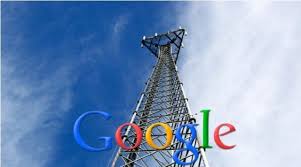
Breaking News
 Quantum walkie-talkie: China tests world's first GPS-free radio for border zones
Quantum walkie-talkie: China tests world's first GPS-free radio for border zones
 RIGHT NOW!: Why was lawyer Van Kessel, of the civil case on the merits in the Netherlands, arrested?
RIGHT NOW!: Why was lawyer Van Kessel, of the civil case on the merits in the Netherlands, arrested?
 PENSION FUNDS PANIC BUYING SILVER – Ratio Below 60 Triggers $50B Wave (Danger Next Week)
PENSION FUNDS PANIC BUYING SILVER – Ratio Below 60 Triggers $50B Wave (Danger Next Week)
 Dollar set for worst year since 2017, yen still in focus
Dollar set for worst year since 2017, yen still in focus
Top Tech News
 EngineAI T800: Born to Disrupt! #EngineAI #robotics #newtechnology #newproduct
EngineAI T800: Born to Disrupt! #EngineAI #robotics #newtechnology #newproduct
 This Silicon Anode Breakthrough Could Mark A Turning Point For EV Batteries [Update]
This Silicon Anode Breakthrough Could Mark A Turning Point For EV Batteries [Update]
 Travel gadget promises to dry and iron your clothes – totally hands-free
Travel gadget promises to dry and iron your clothes – totally hands-free
 Perfect Aircrete, Kitchen Ingredients.
Perfect Aircrete, Kitchen Ingredients.
 Futuristic pixel-raising display lets you feel what's onscreen
Futuristic pixel-raising display lets you feel what's onscreen
 Cutting-Edge Facility Generates Pure Water and Hydrogen Fuel from Seawater for Mere Pennies
Cutting-Edge Facility Generates Pure Water and Hydrogen Fuel from Seawater for Mere Pennies
 This tiny dev board is packed with features for ambitious makers
This tiny dev board is packed with features for ambitious makers
 Scientists Discover Gel to Regrow Tooth Enamel
Scientists Discover Gel to Regrow Tooth Enamel
 Vitamin C and Dandelion Root Killing Cancer Cells -- as Former CDC Director Calls for COVID-19...
Vitamin C and Dandelion Root Killing Cancer Cells -- as Former CDC Director Calls for COVID-19...
 Galactic Brain: US firm plans space-based data centers, power grid to challenge China
Galactic Brain: US firm plans space-based data centers, power grid to challenge China
Google Fiber Sheds Workers As It Looks to a Wireless Future

Google Fiber is getting a lot smaller. Alphabet is sending hundreds of employees at Access—the division that runs the high-speed internet service—to work at other parts of the company, an Access spokeswoman says. It's not the end of Fiber, not exactly. But the slimming-down likely signals a future for Alphabet's broadband ambitions that involves less fiber.
Google first announced Fiber in 2010 with a widely publicized contest to see which city the company would first grace with its ultra-fast service. Since then, Fiber has spread to several US cities and metropolitan areas. But Access said in October that it was curtailing plans to expand to new locations, and Alphabet has clearly lost faith in the idea of running fiber optic cables right into people's homes, at least in the traditional way. Instead, Access has hired a new CEO, tech and broadband veteran Greg McCray, to figure out new ways to bring faster—and presumably cheaper—high-speed internet access to the rest of the country. Those plans may not include much fiber from Google at all.
Access' restructuring won't affect the places where Google Fiber is already available—new customers can still sign up, and the company is still pushing forward with plans to offer Fiber in Nashville, Louisville, and San Antonio. And it's possible the company could one day resume efforts to bring actual fiber into homes if it can figure out a way that costs a lot less money. (The company has been experimenting with a process called microtrenching.) But for now, the future of high-speed internet from Google looks decidedly wireless.
The problem with rolling out a new, high-speed internet service the traditional cables-in-the-ground way is that even though many cities already have plenty of fiber optic pipe buried beneath their streets, it's still hellishly expensive to connect those pipes to customers' homes. Last year, however, Access bought Webpass, a company that beams high-speed broadband via networks of small antennas. That approach might enable Google Fiber to deliver service to individual customers by tapping into existing fiber optic infrastructure without having to string new cables along utility poles or dig up people's yards.
Last October, just as the Webpass acquisition was closing, Access petitioned the Federal Trade Commission to open up more of the wireless spectrum that Webpass uses, which could enable Fiber to expand wirelessly much more quickly. Meanwhile, Fiber is already experimenting with new wireless technologies in Kansas City and looks set to expand those experiments to other cities as well.



